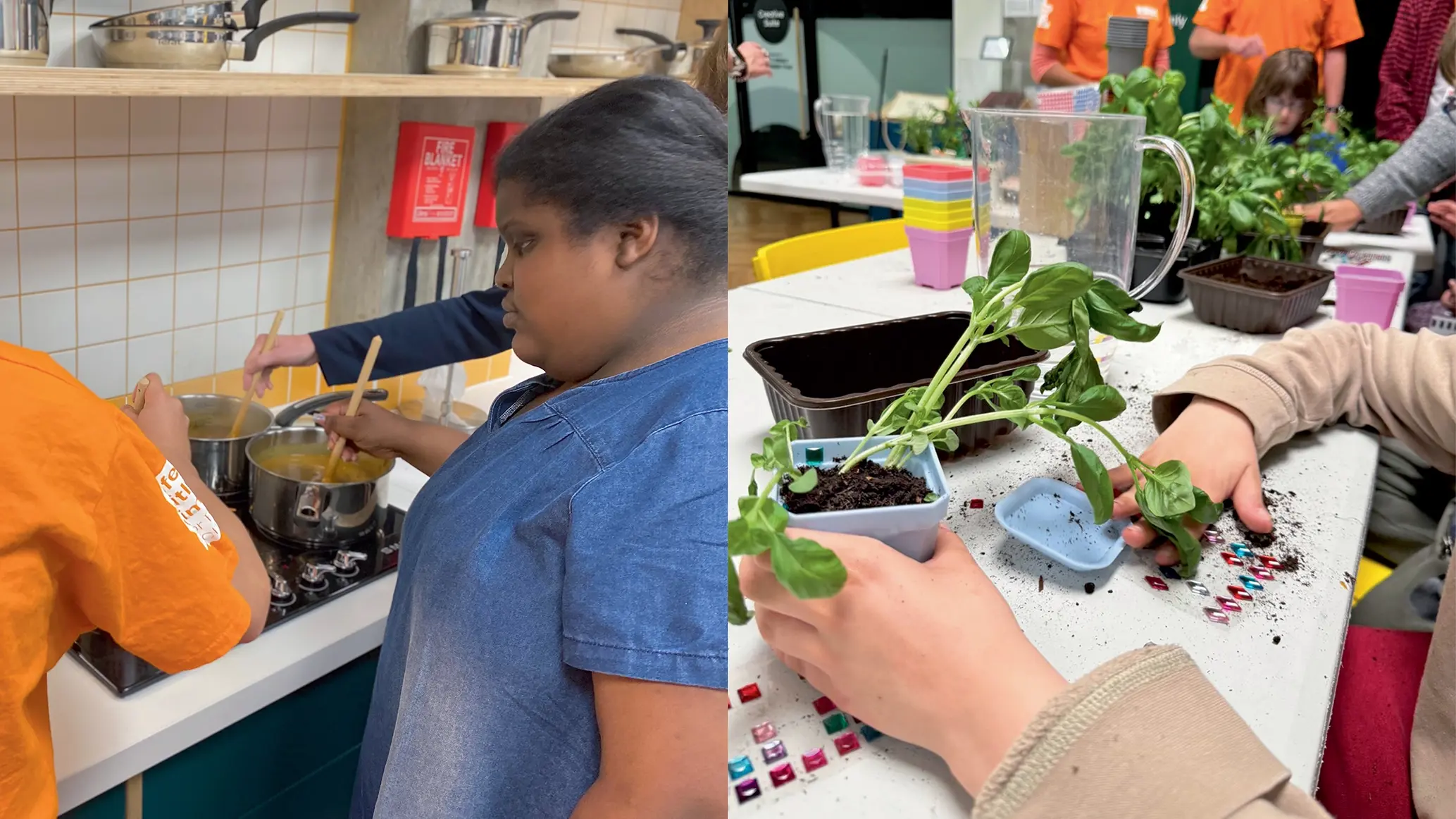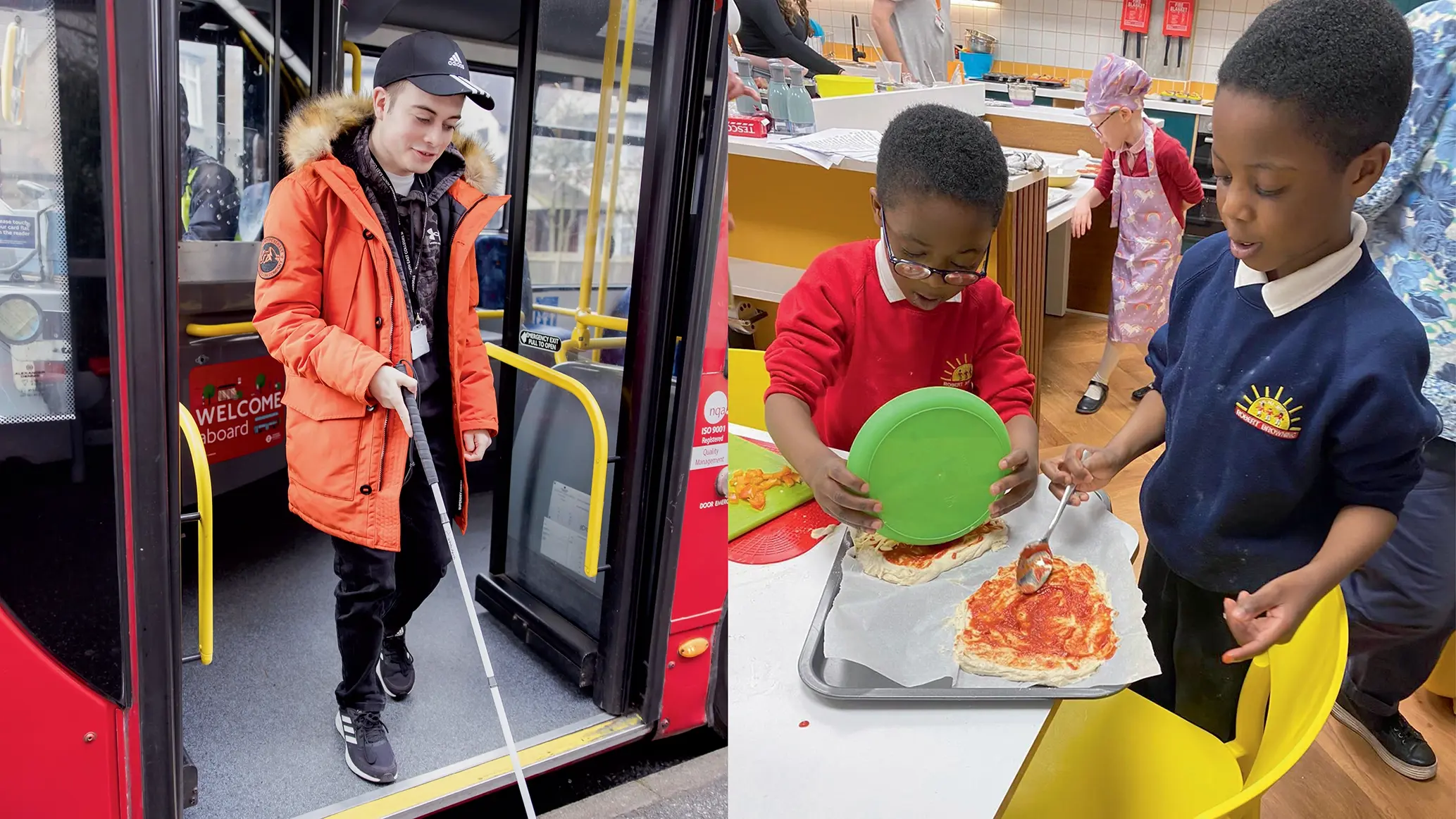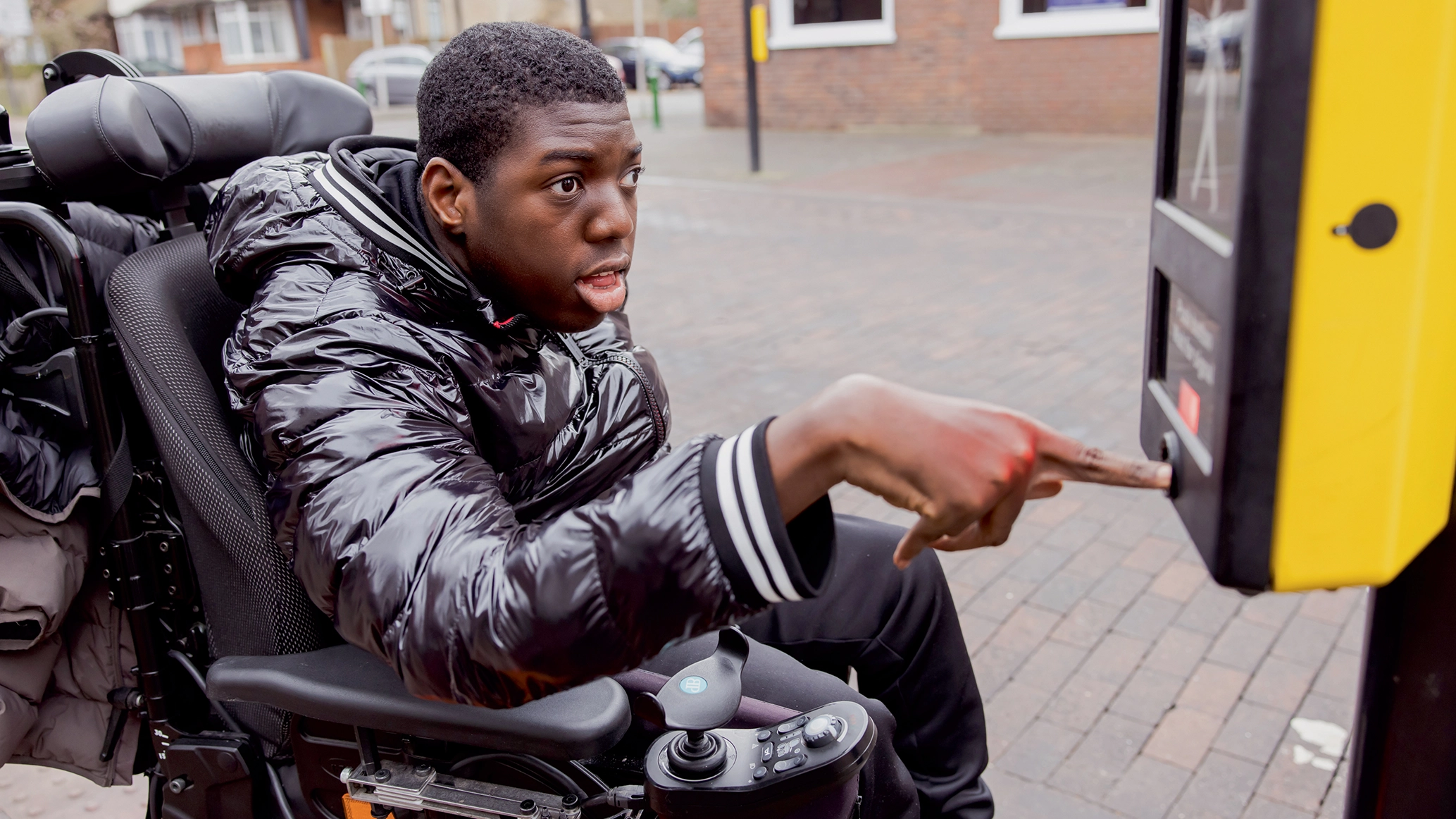For vision-impaired children and young people, the RSBC offers vital services that give them belief in their ability to navigate the world.
"We offer a wide range of support for both children and young people, but also their whole family because, when a child is diagnosed as vision impaired, it affects everyone," says Carla Rose-Hardman, Services Provider at the RSBC. "We're providing support from that point of diagnosis right through to when a young person is 25 and is moving into adult services."
Founded in 1838, the RSBC's roots are in education, but it has since expanded to provide emotional wellbeing support for the children it helps by offering activities that allow them to learn new skills, make friends and reduce social isolation.
Improving confidence
Carla says the charity has benefitted hugely from the £144,861 grant awarded by the Motability Foundation under its Travelling with Confidence programme. The grant aims to improve the mobility and confidence of blind and partially sighted children and young people in England and Wales. This vital work is led by the RSBC's habilitation specialist, Rosie Green. A habilitation specialist works one-to-one with vision-impaired children to build their abilities across four main areas - mobility, orientation, independent living skills and transition support.
"It's a real game-changer for us," Carla says of the grant. "Habilitation support, as it's called, is a very specialist role and there aren't many of them in the country. For us to secure someone to support young people to become more independent is absolutely crucial."

Navigating the world
Families of early years children benefit from the monthly online sessions conducted by Rosie, where attendees discuss how to build independent living skills with their children. And by showing young people how to navigate their environment safely, Rosie has helped them to manage big life shifts such as university, changing schools or gaining employment. "Only one in four vision-impaired people is currently employed in this country," explains Carla. "For us to give young people all of the tools they need to achieve employment, if that's their choice at the end of their childhood, then that's what we want to do."
One-to-one learning
The bespoke one-to-one sessions offered by the RSBC are tailored to the child or young person in several ways, taking into consideration their personal goals and the type of vision impairment they have. For a young person with albinism, for example, Rosie would have to consider doing the lesson on a day that is not bright and sunny.
"We'll speak to the young person or the family to find out what it is the young person wants to achieve," says Carla. "So, let's say they want to learn their route to our Life Without Limits Centre in London, so they're able to meet other VI young people and attend fun activities, Rosie will work with that young person so that they can navigate and plan their route from their home right through to the centre."
The lessons offered, thanks to the grant, give vision-impaired children and young people a lifeline to a more easily accessible life one where they can meet the same milestones as their peers and look towards a bright future where they can live independently.
How to get support
For families with blind or partially sighted children and young people, Carla says there are a number of ways to contact the RSBC for support.
"Quite a few of our referrals come in through professionals that [families] are already linked with. There might be a qualified teacher for the vision impaired (QTVI) who works with the family from early on, and we make sure they know about the RSBC so that they can refer," says Carla.

"If you look up "blind children', we pop up on a Google search. Families can find our website and they can self-refer, either by enrolling on one of our services, coming along to our family sessions or just asking for help via our enquiry form. Our habilitation specialist, Rosie Green, also has a specific page on the website where you can reach out to her."
Get in touch with the Royal Society for Blind Children on their official website.
Photos: KateDarkins/The Royal Society for Blind Children, The Royal Society for Blind Children





